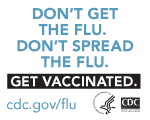CDC In the News
Laboratory Safety and The Select Agent Program
Published: October 3, 2007
On October 4, 2007, CDC experts appeared at a hearing with the House Energy and Commerce Subcommittee on Oversight and Investigation to report on Laboratory Safety and the Select Agent Program. The following are introductory facts on the topic. For more on this you may wish to visit the select agent website: http://www.selectagents.gov/ or read the statement of Richard E. Besser, M.D., Director, Coordinating Office for Terrorism Preparedness and Emergency Response, CDC, submitted as testimony.
Background
Oversight of Select Agents by the Centers for Disease Control and
Prevention
Statement of Richard E. Besser, M.D.,
(![]() 82
KB) Director, Coordinating Office for Terrorism and Preparedness and
Emergency Response, CDC Subcommittee on Oversight and
Investigations, Committee on Energy and Commerce, U.S. House of Representatives.
82
KB) Director, Coordinating Office for Terrorism and Preparedness and
Emergency Response, CDC Subcommittee on Oversight and
Investigations, Committee on Energy and Commerce, U.S. House of Representatives.
Select agents are biological agents and toxins that can cause serious harm to humans. Research is needed to develop countermeasures to them. This research requires accepting some risk as ways to protect humans are sought.
Before 1996, the U.S. had no oversight program for select agents. In 2002, Congress strengthened oversight to minimize the inherent risk.
Not all laboratories work with select agents. For example, HIV and TB are not select agents.
The select agent program requires individual and entities (e.g., laboratories at Universities, public health laboratories, DoD laboratories and CDC's laboratories) to register to possess, use and transfer select agents.
CDC executes the Select Agent Program and confirms compliance primarily through laboratory inspections. All registered labs are treated the same.
Current Situation
Public concerns and questions about the overall safety of our nation's laboratories, especially those involved in research with select agents, are understandable and legitimate.
In four years with approximately 400 registered organizations, and after careful investigation of potential incidents, there have been no confirmed losses or thefts of a select agent, and three confirmed, but contained, releases of a select agent.
After investigation by Health and Human Services, the U.S. Department of Agriculture and the Federal Bureau of Investigation, none of these releases was considered to be a threat to the public's safety and well being.
Future Improvements
The Select Agent Program continues to seek ways to improve. CDC seeks advice from multiple experts in an effort to improve incident reporting, lab-worker safety, and lab-inspection processes. In the coming year, CDC will commission an external peer review of the CDC Select Agent Program. The external group conducting this review will actively solicit the input of stakeholders and the general public.
Content source: Centers for Disease Control and Prevention

